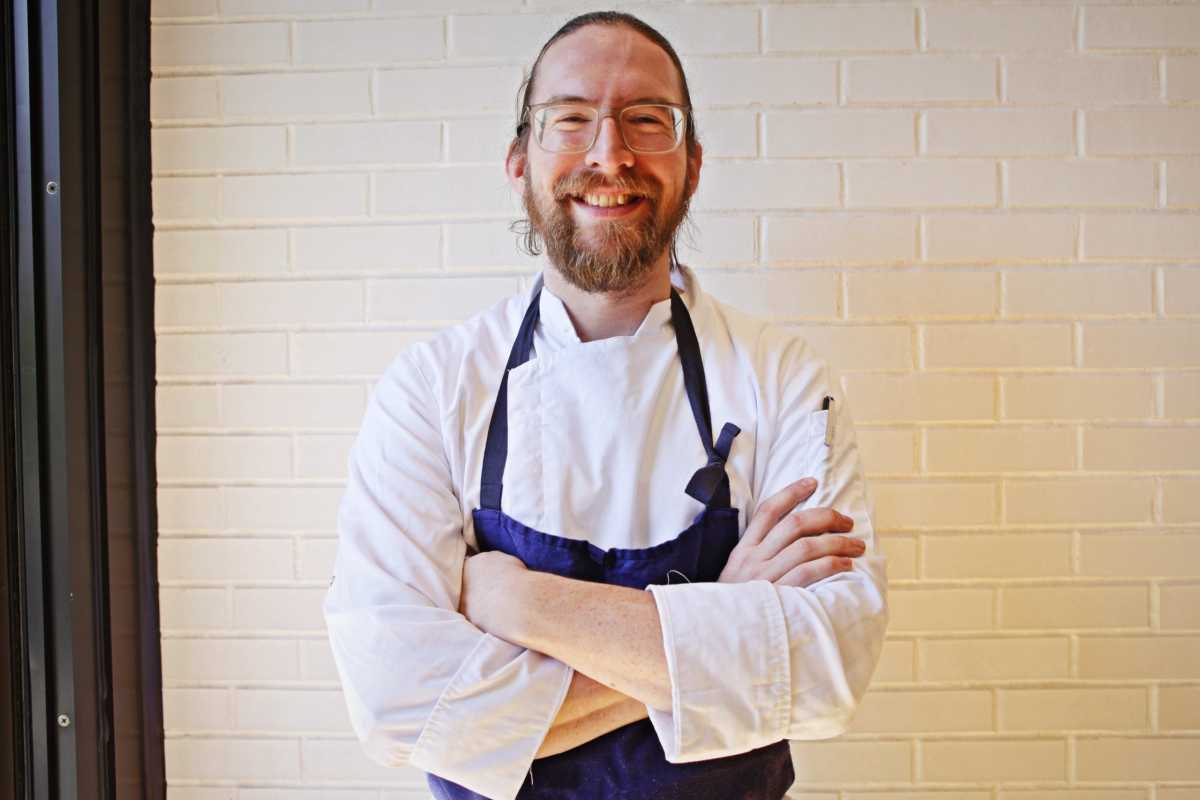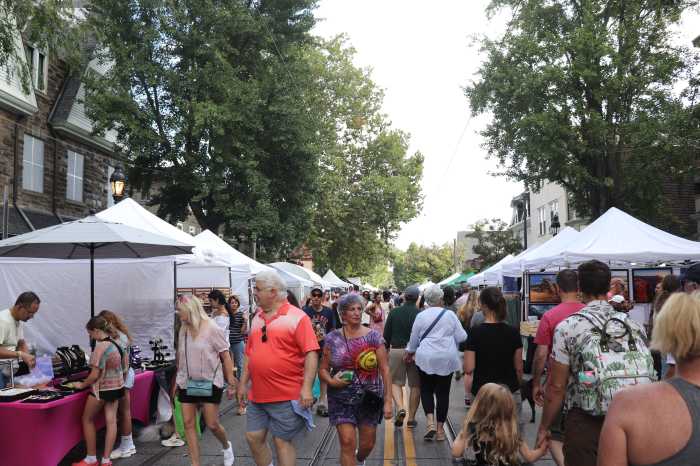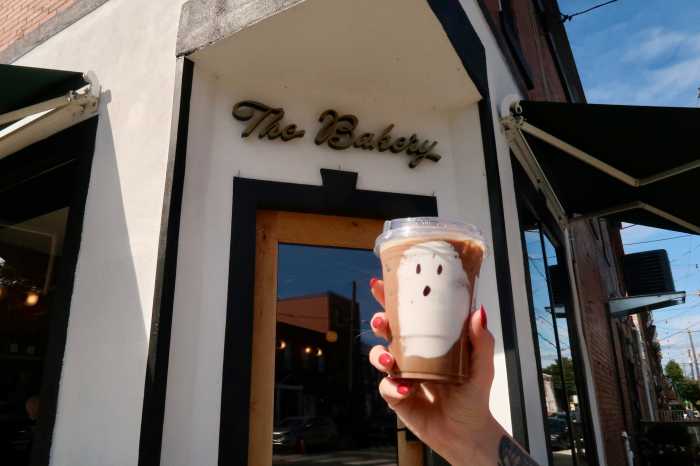The idea of a co-op is better known as a shared space for work and corporation. In University City’s The Study Hotel, centered between University of Pennsylvania and Drexel U, CO-OP stands for a community celebrating diverse cultures, flavors and ingredients indigenous to the Mid-Atlantic region. To that call, Chef Kyle Berman moved from Louisiana to Chicago and now West Philadelphia to community build and executive chef at CO-OP, and treated students, educators and citizens to traditional and contemporary regional cooking practices with locally sourced ingredients.
Metro caught up with Berman to learn more.
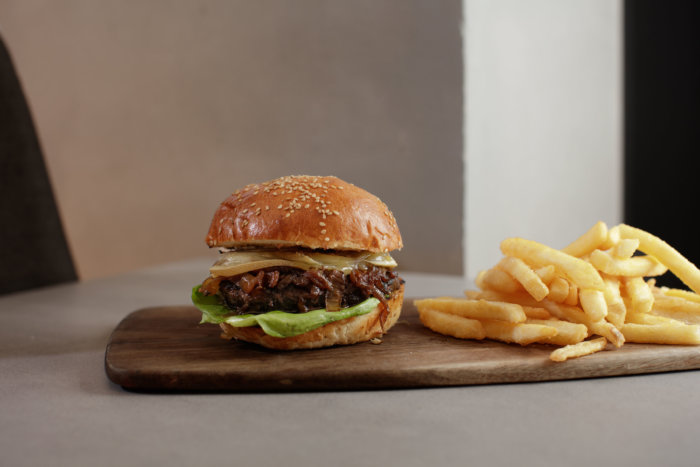
What are the benefits — culinary and social—in terms of conservation of agricultural communal co-op dining and cooking in your mind, and what experience have you had in the field?
The symbiosis of the agricultural community and the diner is one of the greatest benefits. By supporting, consuming, and purchasing product from small agricultural networks, we encourage their hard work, superlative product, and communal ethos. With our support they can continue what they do, which in turn provides exceptional ingredients for our diners which increases quality of the finished plate and overall dining experience. In supporting each other we get an end result that qualitatively is greater than the sum of its parts.
I have been a part of restaurants that went out of their way to support local farmers and growers… like one I worked at in the suburbs of New Orleans with a small farm attached, complete with livestock. The first half of our day was farm chores then we’d go into the restaurant and begin prep for that night’s service. While I would by no means say I have a comprehensive understanding of the farmer’s daily life, that experience gave me a small taste and an even greater appreciation for the hard work, diligence and dedication required to produce the products they do.
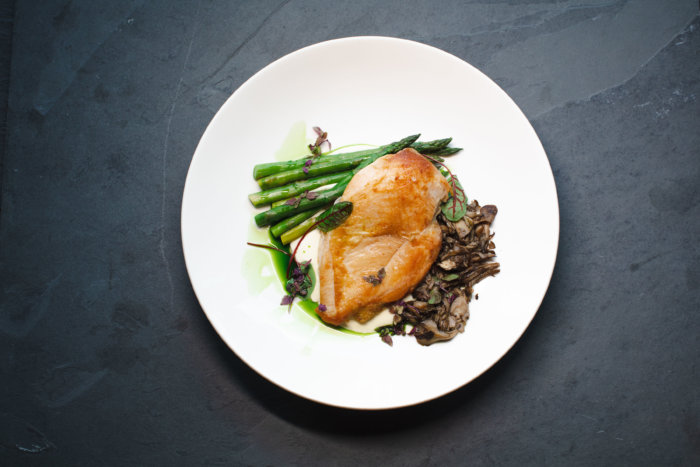
What’s your impression of Philly’s local agricultural vibe?
I grew up in Philadelphia. After undergrad, I pursued the culinary field in earnest, began traveling and pushing hard to get into the best kitchens I could across the country. After seven years away, I came back and was astounded at the change. Vetri only had one restaurant. Amada was where Garces was pushing hard. You had The Grille, The Fountain Room, and Lacroix as the big hotel restaurants and then a plethora of small BYOBs. Le Bec Fin was still a big player at the time.
Coming back years later, the scene is far more dynamic. There is currently a plethora of restaurants in the area that are highly conscious of their footprint. These restaurants are going out of their way to source and showcase the best products this area has to offer. Seasonality, sustainability, locally sourced, and responsibly-sourced are now common words throughout Philadelphia restaurants. It is truly heartening to see.

Can you give me a picture of how CO-OP’s culinary inspiration has drawn from the “regional cooking techniques brought over from the diverse migrant communities that settled along the East Coast since the 19th Century”?
The interplay of different migrant groups settling here and bringing with them their own culinary tradition have invariably affected the area and each other. This amalgamation of multiple cuisines coming together to make its own unique cuisine influenced by the others is the essence of what we consider American food. What CO-OP does is distill this idea down to a very small region the size of seven states, allowing us the opportunity to really focus on the regional intricacies of the mid Atlantic area.
We pull inspiration from old housekeeping and cooking texts to get a sense of time and regional context. With some peoples and cuisines that are not necessarily appropriately represented in these old books, I have tried to do a healthy amount of research on their respective food cultures and apply aspects of that to the products from this area. We never want to be seen as “fusion”. We are trying to provide food that respectfully pulls from the heritage of the groups that settled here and apply it to this region’s bounty to showcase the best of what this area has to offer.
Feel free to connect everything you just said to your CO-OP menu.
The roast chicken dish was ripped straight out of a Virginia cookbook published in 1853. That’s is a bit more of a direct connection. You’ll see some other more subtle nods. All of our pasta is made in-house. Our Linguini and Clams dish is a direct nod to a pretty traditional Italian staple that has become a beloved regional Italian-American classic. In all honesty, the concept of the restaurant provides us a very wide palate of techniques and cuisines to pull inspiration from but it’s the application of these techniques and flavors on this region’s specific ingredients that will bring the concept back to center. Our entire idea is to showcase the best of what this area has to offer with all the tools at our disposal.
For more information, visit coopphilly.com



